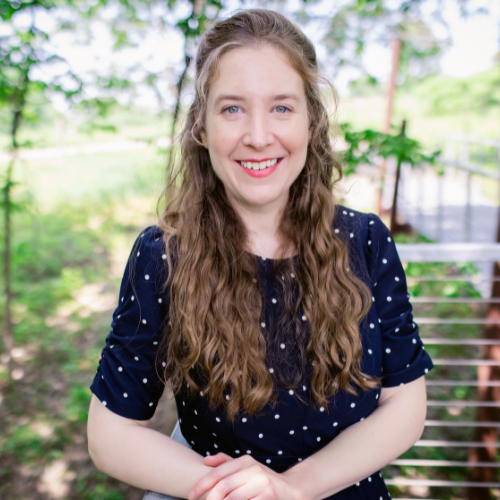My wilderness moment
After fifteen years in the same career, I sensed a sudden and almost inexplicable call into ministry. What was God up to? I wanted answers, so in the dead of winter, I booked a tiny cabin at the edge of a Catholic monastery. I anticipated several peaceful days of silence and solitude on the frozen prairie.
That’s not what happened—at least not at first. I lasted about an hour before I called someone, desperate for the sound of another voice in the deafening silence. I did resist the urge to flee, however, and the next few days brought a messy combination of struggle and pain mixed with beauty and discoveries about both God and myself.
In the end, I didn’t come away with a definitive answer to my occupational question. Instead, I got something better: to experience the presence of the living God. That divine encounter deepened my love for God in ways I could not have imagined. It also started my lifelong journey into spiritual practices.
Defining spiritual practices
My introduction to silence and solitude was anything but graceful. Yet, my story illustrates what the practices are designed to do. Rather than bring us answers to our problems, spiritual practices enable us to experience God anew in fresh and dynamic ways. Any exploration of the practices must begin with what they are and also what they are not.
What spiritual practices are:
- They are a means to engage with God’s presence. Spiritual practices are merely tools that place us in the space where God resides so we can listen to, learn from, and love our Creator.
- They are encouraged as part of healthy spiritual growth. Just like any human relationship, our connection with God needs tending, too. Spiritual practices help us to better understand ourselves and God, leading to spiritual maturity.
- They are choices we make for developing our relationship with God. There is a rich menu of practices to choose from that is as varied as we are. Not every practice will work for every person and that’s okay. Part of the journey is determining how God speaks most clearly to us and discovering which practices help us get closer to God.
What spiritual practices are not:
- They are not ways to earn favor with God. God’s love for us is based on grace, not works. We cannot earn righteousness through spiritual practices. The practices place us before God, and it is God who does the transforming work in us.
- They are neither commanded nor required. Spiritual practices are God’s gift to us. We partake out of a joyful desire to experience God more deeply. Our motivation to engage in the practices flows from the freedom we enjoy in Christ.
- They are not exhaustively defined. There is no single comprehensive list of spiritual practices. This means we are afforded abundant creativity in how we practice. The door is open for all kinds of possibilities, from art and music to social justice and service. God delights in helping us uncover new ways to experience the divine.
Categories of doing and not doing
Since there are so many possible practices, how do we know where to start? It can be helpful to think about spiritual practices as falling into two distinct categories: doing and not doing.
Spiritual practices that involve doing are about action. These are practices of engagement where we say yes to participating in God’s kingdom. Examples include intercessory prayer (making requests to God on behalf of others) and acts of service.
Spiritual practices that involve not doing are about surrender. These are practices of abstinence or disengagement where we say no to things that may be unhelpful to us. Examples include silence and solitude (temporarily withdrawing from the busyness of life to listen for God) and scripture meditation (surrendering our understanding of the text so God can speak through it).
These categories and definitions are simply additional tools that clarify how the practices are intended to help us. Just as there is no definitive list of practices, there is no one right way to categorize them. What matters most is actually experiencing the practices so we can draw near to God.
Taking a closer look
Let’s briefly explore the four practices I mentioned above (intercessory prayer, service, silence and solitude, and scripture meditation) and some practical suggestions for how to do them.
Intercessory prayer
This practice involves praying on behalf of others. Both Jesus and the Holy Spirit model intercession: Jesus prayed on our behalf (Hebrews 7:25, Romans 8:34) and the Spirit intercedes when words fail us (Romans 8:26-27). God works through intercessory prayer to enact change in us and in the world.
Making the practice doable
When you receive a prayer request, ask God to clarify exactly how you might pray for the person. There may be a deeper need that is only known to God.
- Pay attention to nudges from the Holy Spirit about which prayer projects God wants you to undertake. God can alert others to pray for the requests you don’t select.
Questions to ask yourself
- Whom do you feel compassion and concern for as you think about the needs of others?
- Which situations or requests regularly come to your mind?
- How might you ask God to reveal those for whom you should pray?
Service
This practice fosters humility as we put others’ needs before our own. We can extend acts of service to friends, family, and even strangers. Jesus demonstrated servanthood in his own life and insisted that those who desire greatness must first become servants themselves (Matthew 20:26-28).
Making the practice doable
- Ask God to reveal areas in your neighborhood or community that might be good places for acts of service.
- As you prepare, approach the people you wish to serve with humility and listen to their ideas about what is needed.
- Avoid the temptation to be praised for your work. Let God’s pleasure be your greatest reward.
Questions to ask yourself
- Where do you see God already at work in your neighborhood or community?
- How might you join God in the works of service that are already happening?
- Who is your neighbor? How might God expand your ideas about who you are willing to serve?
Silence and solitude
This practice involves temporary separation from the distractions of everyday life so we can more easily hear God’s voice. Jesus regularly practiced solitude when he withdrew from his disciples and the crowds (Matthew 14:13, Mark 6:31, Luke 6:12, plus many others).
Making the practice doable
- It is possible to find solitude without physical separation. Solitude can happen in the midst of a busy day as you draw on the inner peace God grants to you through the Holy Spirit.
- Silence and solitude can be as simple as noticing the fullness of the details around you. In this way, you are practicing being fully present with God, yourself, and others.
Questions to ask yourself
- How might you incorporate elements of noticing and being present as you go about your day?
- What might you discover about God through the things you observe?
- As you consider silence and solitude, which parts of the practice would be easiest for you? Which might be more difficult? How might God help you overcome any difficulties?
Scripture meditation
This practice has many names, including Lectio Divina (Latin for “divine reading”) and Dwelling in the Word. All versions involve choosing a passage of scripture, reading it multiple times, and letting God speak through it. We are invited to notice whatever draws our attention or raises questions for us.
Making the practice doable
- This practice can be done on your own or in a group setting (the Dwelling in the Word invitation in the next section is one possible way to try this online).
- The goal for the reading is depth rather than volume. It can be beneficial to stay in a single text over an extended period of time to see how God brings new meaning to a familiar passage.
Questions to ask yourself
- Which spaces in your personal or professional life might benefit from this practice? Would it make sense, for example, to add this practice at the beginning of a meeting?
- Are there certain scriptural themes (such as comfort, trust or hope, for instance) that interest you in this season? Which verses might you choose that reflect these themes?
Your turn
Spiritual practices are for everyone. They bring about transformation through the slow process of ongoing trial and error accompanied by perseverance. It’s not about perfection; it’s about getting back up and trying again. My own attempts at many of these practices remain imperfect, and I trust that God is with me in both the successes and the failures.
The best way to start any new spiritual practice is to invite God’s participation from the beginning. Notice where you might be struggling in your spiritual walk. Then seek God’s guidance about what to try first. God is ready and eager to meet you right where you are and help you take the first step.
Try it for yourself
If you want to experience a practice in a group setting, you’re invited to join me for our 30-minute online Dwelling in the Word every Tuesday. Visit the Faith+Lead Learning Lab for details.
For further reading
Celebration of Discipline: The Path to Spiritual Growth by Richard Foster
Hearing God: Developing a Conversational Relationship with God by Dallas Willard
Invitation to Retreat: The Gift and Necessity of Time Away with God by Ruth Haley Barton
Spiritual Disciplines Handbook: Practices That Transform Us by Adele Ahlberg Calhoun




